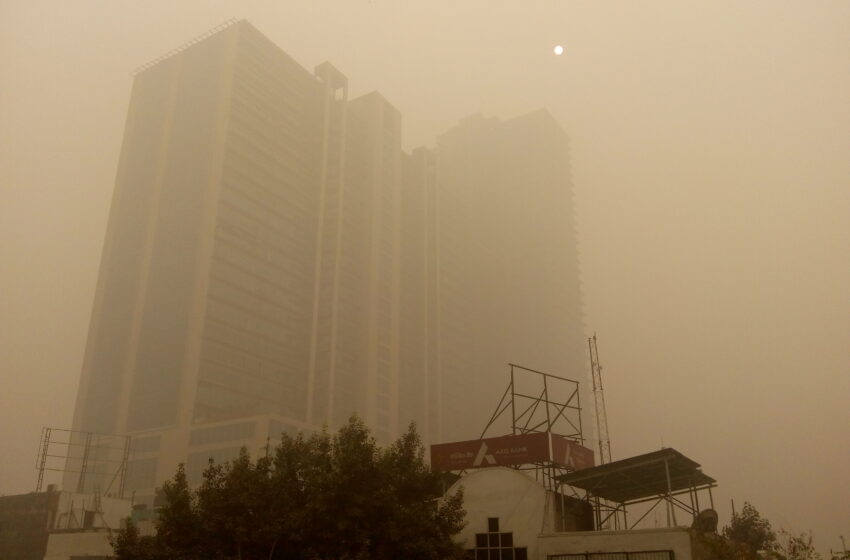Air Pollution is a major cause of Lung Cancer in India, say health experts

Team L&M
Air pollution is a major health issue affecting billions of people around the world, particularly developing countries like India. It is, in fact, the leading cause for the rise of lung cancer in the country.
This was stated by experts participating in conference on Lung Cancer organized by the Associated Chambers of Commerce and Industry of India (ASSOCHAM) yesterday. The other leading causes of cancer of the lungs include cigarette smoking and industrial pollutants.
Shockingly, 63 out of the 100-most-polluted places on earth are in our country, India. Stated experts.
Among the number of things that came to light at the conference was the fact that lung-cancer is also one of the leading causes of cancer-related deaths in India.
As per a study conducted by the Indian Council of Medical Research (ICMR), lung cancer is one of the most prevalent cancers as well as the leading cause of cancer-related deaths. In India, lung cancer constitutes 6.9 per cent of all new cancer cases and 9.3 per cent of all cancer-related deaths.
There are about 70,275 lung cancer cases in India, irrespective of age and gender. It means 6.9 per cent people out of 1,00,000 Indians have this disease. Globally, there are about 2.20-million new cases, among 11.4 per cent of total thoracic tumor cases and 1.79-million deaths (18 per cent of total cancer deaths) as per 2020. By 2025, these numbers are expected to double.
The symptoms of lung cancer, which includes persistent coughing that gets worse gradually, chest pain that intensifies with coughing, blood in the sputum while coughing, hoarseness in voice, breathlessness or gasping, weakness and fatigue, unexplained weight loss and decrease in appetite, among others.
Lung cancer treatment has several challenges related to timely diagnosis, obtaining samples by various modalities, and cost-related issues. Despite providing free diagnostic and treatment services, there is a considerable delay in therapy initiation and a significant proportion of treatment non-initiation and abandonment.”
While cancer detection and treatment methods exist today with us & are strengthening day by day, we must move towards executing the general saying that is prevention is better than cure, said Dr Naresh Panchal, Additional DDG, Dte. GHS. Ministry of Health & Family Welfare, Govt. of India.
Delivering the welcome address at the ASSOCHAM conference on ‘Lung Cancer- Awareness, Prevention, Challenges & Treatment’, Dr. D. S. Rana, Chairperson ASSOCHAM Wellness Council and Chairperson Sir Ganga Ram Hospital mentioned how the focus has shifted to non-communicable diseases now because of COVID-19, highlighting the major cause of Lung Cancer.
Lung Cancer and Air pollution, the two neglected aspects of healthcare. A strong correlation between the two. Alarming and worrying facts, said Dr Sudhir Kalhan, M.S. Chairman, National Council for Healthcare, ASSOCHAM & Chairman Institute of Minimal Access, Metabolic & Bariatric Surgery Sir Ganga Ram Hospital.
Dr Dipjyoti Das, Head of Medical operations and planning at Assam cancer care foundation informed about the operationalization of 7 state of the art cancer Hospitals in Assam. He said, “Distributed cancer care model” of ACCF has been able to bring affordable cancer care to farthest reaches of the state and praised the govt schemes like PMJAY and AAA which have made affordable care for the needy possible.
Dr. V. Srinivasan, Director (FAC), Govt Arignar Anna Memorial Cancer Hospital & Research Institute, Karapettai, Kanchipuram said, Lung cancer is the number one cause of cancer death globally. In India there is a rising trend in incidence of lung cancer anomg smokers as well as non-smokers. Environmental pollutants like arsenic, chromium, nickel, asbestos, dioxins have to be addressed along with smoking being the major cause. There needs to be a national screening program in place. Preventive laws like COPTA, Air pollution and Environment protection act has to be implemented more effectively. Public private partnership to develop facilities and program to screen, diagnose, and treat lung cancer like molecular labs and high-end radiation therapy equipment can be planned. Lung cancer is preventable and treatable cancer. Navya Government Arignar Anna memorial Cancer Hospital Kanchipuram are working on AI project in cancer management funded by MSD pharmaceutical and preliminary results are encouraging.
Dr. Upasana Arora, Co-Chair ASSOCHAM Healthcare Council Chairperson Yashoda Superspeciality Hospital said, avoiding lung cancer is directly dependent on its risk factors including smoking, being overweight, and not getting enough exercise apart from other variables.
One should work on increasing protective factors such as quitting smoking and exercising of the body and even lungs. A healthy diet will also be helpful in protecting oneself from the risk of lung cancer. Physically active people have a lower risk of lung cancer than people who are not.
Ms Neelima Dwivedi, Executive Director, Corporate Affairs & Market Access “Globally MSD Pharmaceuticals is focused upon building community partnerships, addressing barriers to care. In India MSD is working with public health organizations to help develop and implement evidence based informed, innovative program that advances high quality, equitable cancer care at state level.”
The recent advances in lung cancer treatments especially Immunotherapies have the potential to provide long term benefits and survival outcomes for patients. I would say there is good hope for patients with Lung cancer, said Dr Rohit Ghatule, Country Medical Director- MSD India.
Air pollution has emerged as an important risk factor for lung cancer along with many other cancers beyond tobacco use. High risk patients are eligible for lung cancer screening and it is found to be lifesaving. Despite the continuous efforts, uptake for lung cancer screening is very low which emphasizes the need of public awareness. More efforts are needed to make lung cancer treatment accessible and affordable to minimize the disparity and inequality in access to care and outcomes, said Dr Abhishek Shankar, Associate Professor, Department of Radiation Oncology, All India Institute of Medical Sciences (AIIMS), Patna.

